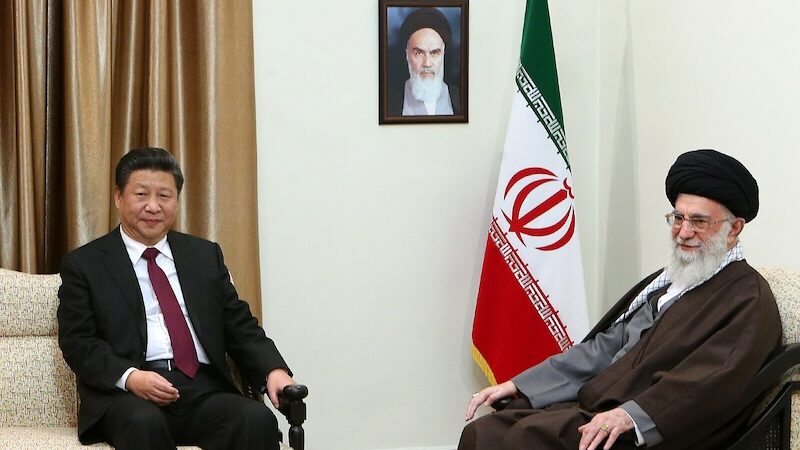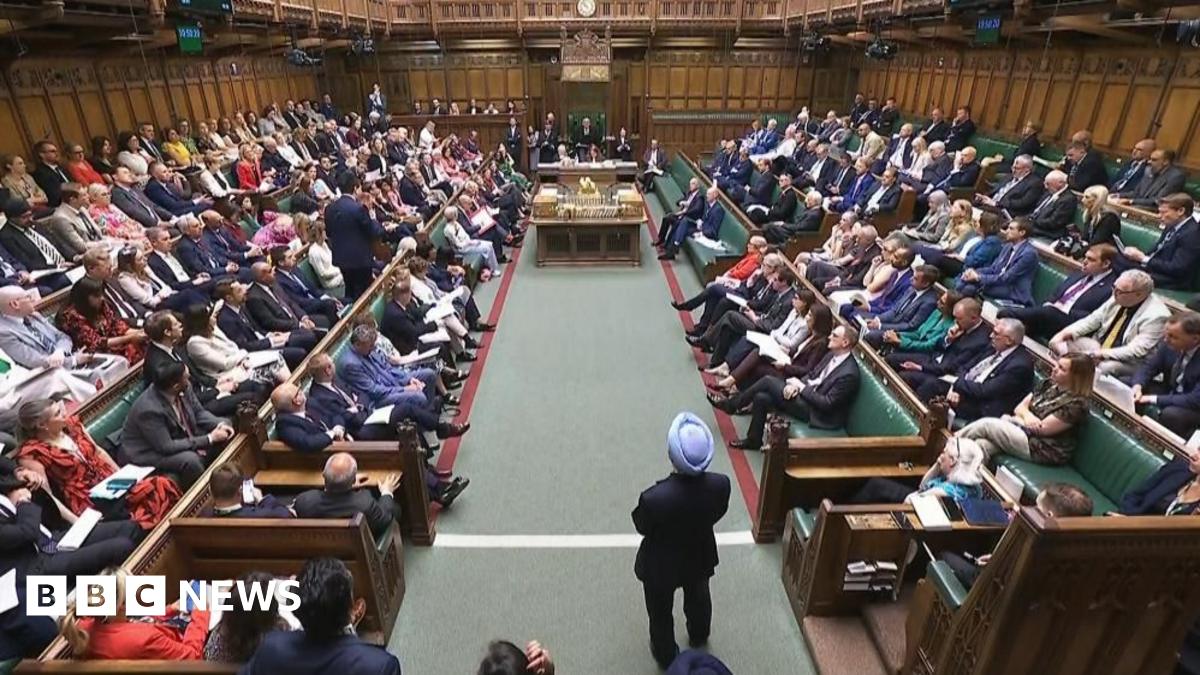Is America's Middle East Strategy Creating An Opening For China?

Welcome to your ultimate source for breaking news, trending updates, and in-depth stories from around the world. Whether it's politics, technology, entertainment, sports, or lifestyle, we bring you real-time updates that keep you informed and ahead of the curve.
Our team works tirelessly to ensure you never miss a moment. From the latest developments in global events to the most talked-about topics on social media, our news platform is designed to deliver accurate and timely information, all in one place.
Stay in the know and join thousands of readers who trust us for reliable, up-to-date content. Explore our expertly curated articles and dive deeper into the stories that matter to you. Visit Best Website now and be part of the conversation. Don't miss out on the headlines that shape our world!
Table of Contents
Is America's Middle East Strategy Creating an Opening for China?
America's shifting focus in the Middle East is raising concerns about a potential power vacuum, creating an opening for China to expand its influence in the region. For decades, the US maintained a dominant military and economic presence, shaping regional politics and security. However, a combination of factors – including the withdrawal from Afghanistan, a less interventionist foreign policy under the Biden administration, and a growing focus on countering China – is prompting questions about the future of US engagement and the opportunities this presents for Beijing.
A Diminishing US Footprint?
The US military's reduced presence in the region, particularly after the chaotic withdrawal from Afghanistan, has been interpreted by some as a sign of waning American commitment. This perception is further fueled by the Biden administration's emphasis on "strategic competition" with China, diverting resources and attention away from traditional Middle Eastern priorities. While the US continues to maintain significant military bases and strategic partnerships in the region, the shift in focus is undeniable. This perceived weakening of the US position leaves a void that ambitious nations like China are eager to fill.
China's Growing Economic and Diplomatic Influence:
China has been steadily increasing its economic ties with Middle Eastern nations through its Belt and Road Initiative (BRI). This massive infrastructure project provides significant investment in ports, railways, and other crucial infrastructure across the region, fostering economic dependence and strengthening diplomatic relationships. China's engagement is not solely economic; it's also diplomatic, involving increased engagement with regional organizations and individual states. This multifaceted approach allows China to build influence without the overt military presence that has historically characterized US engagement.
Strategic Partnerships and Energy Security:
China's growing energy needs are a significant driver of its Middle East strategy. The region remains a crucial source of oil and gas, and China is securing long-term energy supply agreements with various countries, further strengthening its economic and political leverage. This focus on energy security allows China to bypass the traditional Western-dominated energy markets and diversify its sources, enhancing its strategic autonomy. These partnerships are often framed as mutually beneficial, focusing on economic cooperation rather than military alliances, presenting a compelling alternative to some nations wary of US involvement.
Concerns and Challenges for the US:
The potential rise of Chinese influence in the Middle East presents several challenges for the US. These include:
- Increased competition for resources and influence: China's growing economic and diplomatic footprint directly competes with long-standing US interests.
- Potential destabilization: China's engagement, while often presented as non-interventionist, could inadvertently contribute to regional instability.
- Shifting geopolitical alliances: Middle Eastern nations may reassess their alliances based on perceived benefits and risks associated with both US and Chinese engagement.
Looking Ahead: A New Geopolitical Landscape?
The question isn't whether China will increase its presence in the Middle East, but rather the extent and nature of that influence. The US will need to adapt its strategy to navigate this changing geopolitical landscape. This might involve a renewed focus on diplomacy, strengthening existing alliances, and offering alternative models of economic and security cooperation that are more appealing to Middle Eastern nations. The future of the Middle East will likely be characterized by a complex interplay between US and Chinese interests, with the region's own actors playing a crucial role in shaping the outcome. The coming years will be critical in determining the balance of power and the long-term implications for regional stability and global security.
Further Reading:
- [Link to a relevant article from a reputable news source, e.g., The Atlantic, Foreign Affairs]
- [Link to a relevant report from a think tank, e.g., Brookings Institution, Carnegie Endowment for International Peace]
This article provides a nuanced overview of a complex topic. Understanding the dynamics at play is crucial for navigating the evolving geopolitical landscape of the Middle East.

Thank you for visiting our website, your trusted source for the latest updates and in-depth coverage on Is America's Middle East Strategy Creating An Opening For China?. We're committed to keeping you informed with timely and accurate information to meet your curiosity and needs.
If you have any questions, suggestions, or feedback, we'd love to hear from you. Your insights are valuable to us and help us improve to serve you better. Feel free to reach out through our contact page.
Don't forget to bookmark our website and check back regularly for the latest headlines and trending topics. See you next time, and thank you for being part of our growing community!
Featured Posts
-
 The Making Of Jaws A Photographic Journey Behind The Scenes
Jun 22, 2025
The Making Of Jaws A Photographic Journey Behind The Scenes
Jun 22, 2025 -
 Megan Fox And Machine Gun Kelly Welcome Daughter Baby Name Revealed
Jun 22, 2025
Megan Fox And Machine Gun Kelly Welcome Daughter Baby Name Revealed
Jun 22, 2025 -
 Jaws A Behind The Scenes Photo Journey
Jun 22, 2025
Jaws A Behind The Scenes Photo Journey
Jun 22, 2025 -
 Machine Gun Kelly Opens Up About Naming His Daughter Saga
Jun 22, 2025
Machine Gun Kelly Opens Up About Naming His Daughter Saga
Jun 22, 2025 -
 Cameron Brinks Boyfriend Ben Felter Achieves Career Milestone
Jun 22, 2025
Cameron Brinks Boyfriend Ben Felter Achieves Career Milestone
Jun 22, 2025
Latest Posts
-
 Find Out Your Mps Vote On Assisted Dying 20th June
Jun 22, 2025
Find Out Your Mps Vote On Assisted Dying 20th June
Jun 22, 2025 -
 Extreme Uk Heat Two Days Of 33 C Temperatures On The Horizon
Jun 22, 2025
Extreme Uk Heat Two Days Of 33 C Temperatures On The Horizon
Jun 22, 2025 -
 High Profile Case Former Aide Testifies Against Sean Diddy Combs
Jun 22, 2025
High Profile Case Former Aide Testifies Against Sean Diddy Combs
Jun 22, 2025 -
 Fiancees Dazzling White Gown Outshines Stanford Graduation
Jun 22, 2025
Fiancees Dazzling White Gown Outshines Stanford Graduation
Jun 22, 2025 -
 Understanding The Appeal Of Romantasy A Look At Its Popularity And Themes
Jun 22, 2025
Understanding The Appeal Of Romantasy A Look At Its Popularity And Themes
Jun 22, 2025
